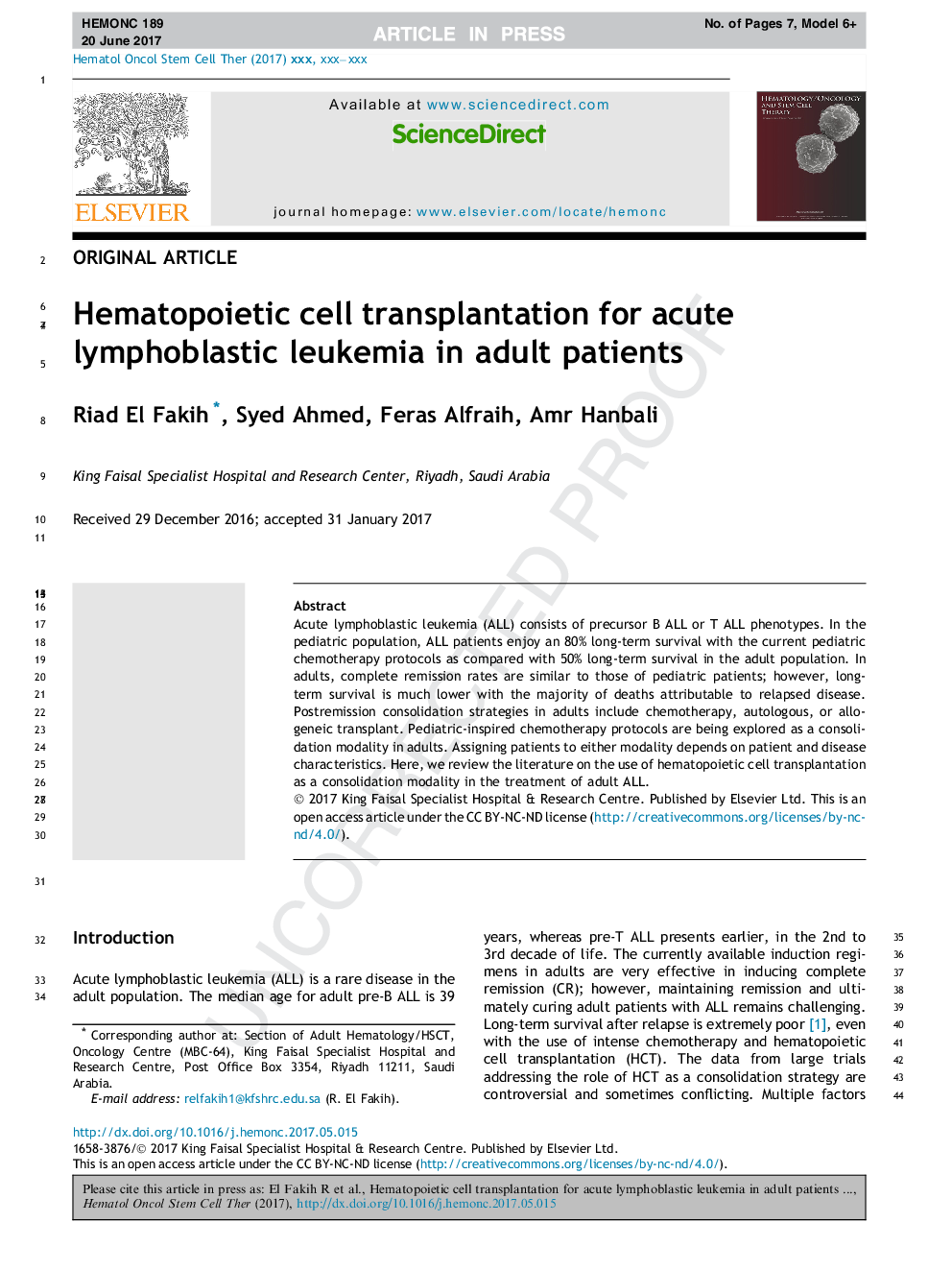| Article ID | Journal | Published Year | Pages | File Type |
|---|---|---|---|---|
| 8452935 | Hematology/Oncology and Stem Cell Therapy | 2017 | 7 Pages |
Abstract
Acute lymphoblastic leukemia (ALL) consists of precursor B ALL or T ALL phenotypes. In the pediatric population, ALL patients enjoy an 80% long-term survival with the current pediatric chemotherapy protocols as compared with 50% long-term survival in the adult population. In adults, complete remission rates are similar to those of pediatric patients; however, long-term survival is much lower with the majority of deaths attributable to relapsed disease. Postremission consolidation strategies in adults include chemotherapy, autologous, or allogeneic transplant. Pediatric-inspired chemotherapy protocols are being explored as a consolidation modality in adults. Assigning patients to either modality depends on patient and disease characteristics. Here, we review the literature on the use of hematopoietic cell transplantation as a consolidation modality in the treatment of adult ALL.
Related Topics
Life Sciences
Biochemistry, Genetics and Molecular Biology
Cancer Research
Authors
Riad El Fakih, Syed Ahmed, Feras Alfraih, Amr Hanbali,
